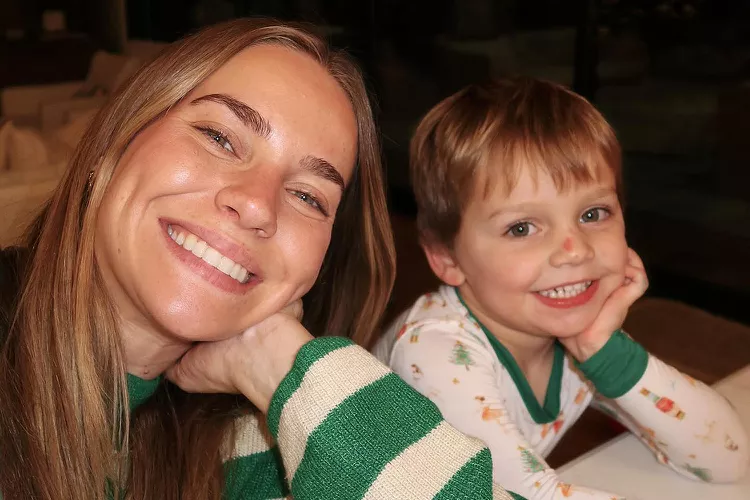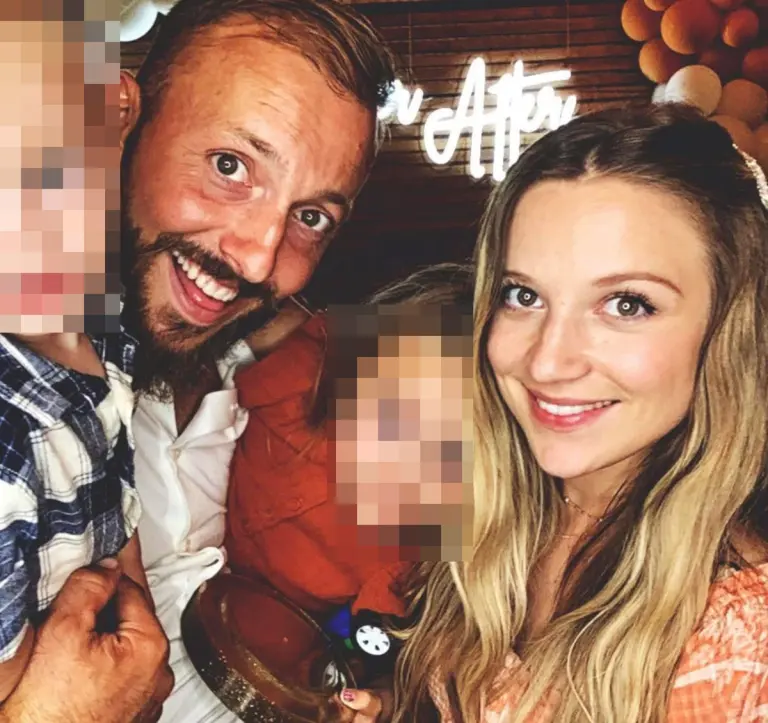Emilie Kiser Tearfully Shares How Her First Holiday Season Without Her Son Trigg Feels Like “Living a Different Life” as She Faces a Heartbreaking New Reality
As the holiday season approaches, families across the country are preparing for traditions built on warmth, gratitude, and togetherness. But for Emilie Kiser, this year looks painfully different. It is her first Thanksgiving since the death of her 3-year-old son, Trigg, and the emotional weight of that absence has reshaped every corner of her life. In a tearful update shared with her followers, Emilie spoke with raw honesty about how grief has changed not just her holiday plans, but her very sense of identity. She described feeling as though she is “living a different life,” a life split into two distinct timelines: before Trigg’s death, and everything after.

Trigg passed away earlier this year, leaving behind a family who adored him and a community of supporters who continue to wrap around Emilie as she navigates the most difficult chapter of her life. He was known for his bright smile, his gentle nature, and the infectious joy he carried in every photo and video Emilie shared. For many who followed her parenting journey online, he felt like part of their extended family — a little boy whose sweetness shone through even the simplest moments. Losing him was devastating not only for his loved ones, but for the countless people who had watched him grow.
As the months have passed, Emilie has spoken candidly about her grief, never pretending that healing is linear or predictable. And now, with the holidays just days away, she is acknowledging a reality that thousands of grieving parents quietly face each year: the way joy and sorrow collide in the season most associated with family. For Emilie, this collision is sharp and overwhelming. She admits she doesn’t know how to feel festive in a world where her son’s laughter is no longer filling their home.
In her emotional message, Emilie explained how everyday tasks that once felt simple now come with unexpected grief triggers. Something as ordinary as seeing children’s holiday pajamas in a store display can send her spiraling. Recipes, decorations, and family gatherings — things she once looked forward to — now force her to confront the empty space Trigg left behind. She described the way grief “sits in every corner,” coloring even the happiest memories with a sense of incompleteness.
Her honesty has struck a chord with many parents who know this feeling too well. Holidays often amplify loss, not because love has faded, but because traditions are built around togetherness. For Emilie, Thanksgiving was always a time of warmth with her children. She shared pictures in past years of Trigg helping in the kitchen, running around the house in holiday pajamas, or curling up next to his siblings in moments of quiet joy. These memories are beautiful, but they also magnify the ache of his absence.
Emilie says she feels as though she is moving through a world that continues on normally while her own life has been split wide open. She described it as “living a different life,” one where the simplest things require strength she never imagined needing. It is a sentiment often echoed by those who have experienced profound loss — a sense that the world looks the same, yet everything has changed. People go back to routines, holidays return on schedule, but for the grieving, time no longer moves in the same rhythm.
Despite the heaviness of her grief, Emilie expressed deep gratitude for the support she has received. She mentioned how kind messages from strangers have helped her on days she felt she couldn’t keep going. People have shared stories of their own losses, creating a community of understanding around her heartbreak. Emilie says knowing that others have survived seasons like this brings her glimmers of comfort, even in the darkest moments.
But she also acknowledged how complicated gratitude feels right now. In past years, she would spend Thanksgiving reflecting on all the good in her life. This year, she’s confronting a new kind of gratitude — one that coexists with pain. She is thankful for the years she had with Trigg, for the joy he brought, and for the way he changed her, but she also grieves the years she will never get. It is gratitude wrapped in sorrow, and she is learning how to hold both at once.
Emilie’s vulnerability has helped destigmatize conversations around child loss, a subject that often remains whispered about rather than openly discussed. Her willingness to share her journey offers visibility to countless parents whose grief goes unseen. She has said before that if speaking openly about Trigg helps even one grieving parent feel less alone, then she will continue to share honestly. And this Thanksgiving, that honesty is resonating more deeply than ever.

Experts in grief counseling note that the first holiday season after the death of a child can be one of the most emotionally difficult periods in a parent’s life. Holidays are filled with rituals that highlight absence — an empty chair at the table, a missing stocking, traditions that have suddenly stopped mid-story. Many parents describe feeling as though they are performing for the world, trying to smile through pain because the holiday season expects cheer. Emilie’s openness about her struggle pushes back against that pressure, allowing space for grief in a season that often leaves little room for it.
She shared that she has not yet decided exactly how she will spend Thanksgiving this year. The idea of gathering with family brings both comfort and fear. She wants to honor Trigg’s memory but also protect her heart. Some parents choose quiet, private observances during the first year. Others cling to familiar traditions. Emilie is still figuring out what feels right. She spoke about trying to give herself permission to feel whatever comes — sadness, gratitude, anger, numbness, or all of them at once.
What makes Emilie’s message so powerful is not just her grief, but her love. Even in her heartbreak, her words are full of how much Trigg meant to her. She talks about him not as part of a tragic story, but as a vibrant, joyful child who filled their lives with light. She holds onto the memories that give her strength: his laughter, his little hands wrapped around hers, the way he lit up when he saw his siblings. These memories are painful, but they are also the reason she keeps moving forward.
As she prepares for Thanksgiving, Emilie says she is trying to focus on what she can control — small moments of calm, breathing through waves of grief, and leaning on the people who love her. She knows this holiday will be hard, the hardest she has ever faced, but she is taking it one day at a time. She hopes that others who are grieving this season will give themselves the same compassion she is learning to offer herself.
Her message ends with a thought that has resonated deeply with her followers: that grief and love are inseparable. She said she will never stop missing Trigg, not during Thanksgiving, not during Christmas, not during the ordinary days in between. But she will keep carrying him, in her memories, in her heart, and in the life she continues to build — one breath, one moment, one painful holiday at a time.


